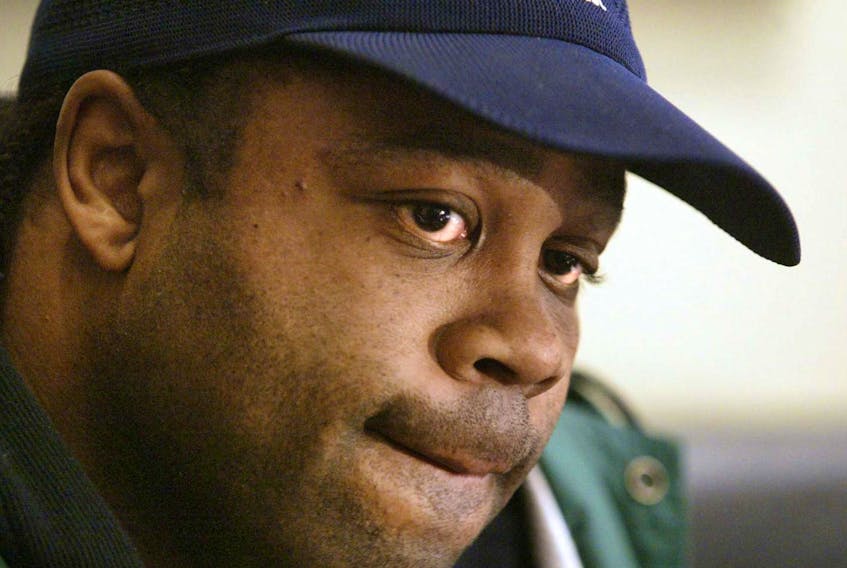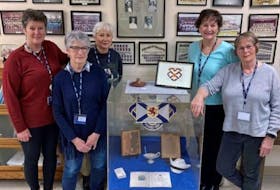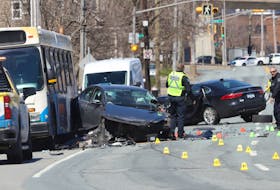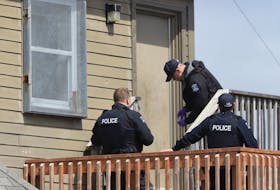Former heavyweight boxer Kirk Johnson says a formal apology from the Halifax police chief to the black community is a good start.
“Nova Scotia is an excellent place, for the most part, and the majority of the people here are good people,” said the 47-year-old Johnson who launched a legal battle against the Halifax Regional Police more than 15 years ago for racial discrimination and racial profiling.
“You’ve got your bad apple anywhere you go. You’ve got to have hope. In order to go on in life, you have to have hope.
“The potential is on the side of getting better rather than worse.”
Police Chief Dan Kinsella apologized to the black community last week for generations of negative experiences with police and the specific police practice of street checks that is now banned in the province.
“I am sorry for our actions that caused you pain,” Kinsella said in 12-minute formal apology delivered at the Halifax Central Library. “I am sorry for all those times you were mistreated, victimized and revictimized. While decades of injustices cannot be undone, we are committed to doing better moving forward. My hope is that today’s apology shows you our commitment to change and our promise to do better.”
Johnson, who grew up in North Preston, returned to Halifax hours after the apology was delivered and didn’t hear the chief’s words. From what he’s heard, Johnson said he’s not convinced the apology went far enough.
“Anybody can say they are sorry,” Johnson said, comparing an apology with a New Year’s resolution.
“Of all the New Year’s resolutions that you had, how many did you go through with? I haven’t done any. Every year, I say I am going to do this, I confess to my mother and father, to my wife that this is what I’m going to do. The year will go by and I never do it.
“Is this (apology) a New Year’s resolution or is this going to be real? Are we going to see some type of change, is the community going to actually say, yes, we have seen change and we feel change or are they going to say the apology was an apology but there was no change. In due time, we’ll see if there was a change, if the apology meant something. I’m not real big on too many words, I’m a little bigger on action.”
Kinsella outlined a corresponding action plan that will include an advisory committee with strong community membership, officer training, diverse recruitment and public education.
Johnson doesn’t agree with the term retrain.
“You don’t need to be retrained when it comes to race,” he said. “A human being is a human being.
“To me, whether you are black or white, a police officer should treat everybody with the same respect. When you say retrain them, did you train the officers to go against blacks and to be for whites, I don’t think they trained them like that. So, to me what needs to be put in place are certain penalties.”
He said if officers break department policies, they have to face repercussions, like a suspension without pay.
Johnson has ample experience with police officers acting in a discriminatory or racist fashion. In April 1998, Johnson and his cousin, Earl Fraser, who are both black, were pursued on Highway 111 by Const. Michael Sanford and stopped at a shopping plaza just off Main Street in Dartmouth. Fraser was driving Johnson's Texas-registered 1993 black Ford Mustang. Sanford asked for proof of insurance and vehicle registration but was not satisfied with the valid documents offered. He ticketed Fraser and ordered the car towed.
Johnson filed a complaint with the Nova Scotia Human Rights Commission alleging that he was pulled over and harassed because he is a black man. The Halifax Regional Police force was eventually held liable for the conduct of its officer and the board of inquiry awarded Johnson $10,000.
Johnson had reported at the time that he had been stopped 28 times over five years in Halifax. HRP could not provide updated statistics on the proportionality of black drivers stopped in vehicles compared with whites. However, a survey of 506 Halifax residents conducted from September to November of 2018 for criminologist Scot Wortley’s report on street checks found that 40.3 per cent of black respondents in Halifax said their vehicles were stopped two or more times in the previous five years as compared with 17.5 per cent of whites.
Johnson said he thought the situation was improving until he was twice stopped on Halifax roads earlier this year. On one occasion, the officer stopped him because he was slowing down at a green light because, Johnson said, the vehicle approaching the red light at the intersection didn’t look as if it would stop. That officer treated him respectfully, he said, but he still doesn’t know why he was stopped because the officer would have seen the vehicle speeding toward the red light just as he had.
The second stop was because the officer thought his out-of-province licence plate was fake. Johnson said that officer was rude.
“He pulled me over and showed me disrespect, put me back in the same situation I was in years ago,” Johnson said. “I was getting stopped all the time for made-up reasons. The last time I got stopped, it wasn’t for a good reason. … For a minute there, I thought it had changed but this showed me that things were getting back to the way they used to be.”
Johnson said the chief’s apology left out the part about traffic stops, “when an officer stops you in a car for no good reason at all, wasting your time.
“They stop you because they can and because of the colour of your skin. There should have been an apology for that.”
Johnson, who earned 37 professional boxing victories along with his significant knockout before a board of inquiry, remains hopeful.
“My first instinct is maybe it’s going to make a change,” he said of last week’s formal apology. “We just have to wait and see what’s going to happen in the future.”









